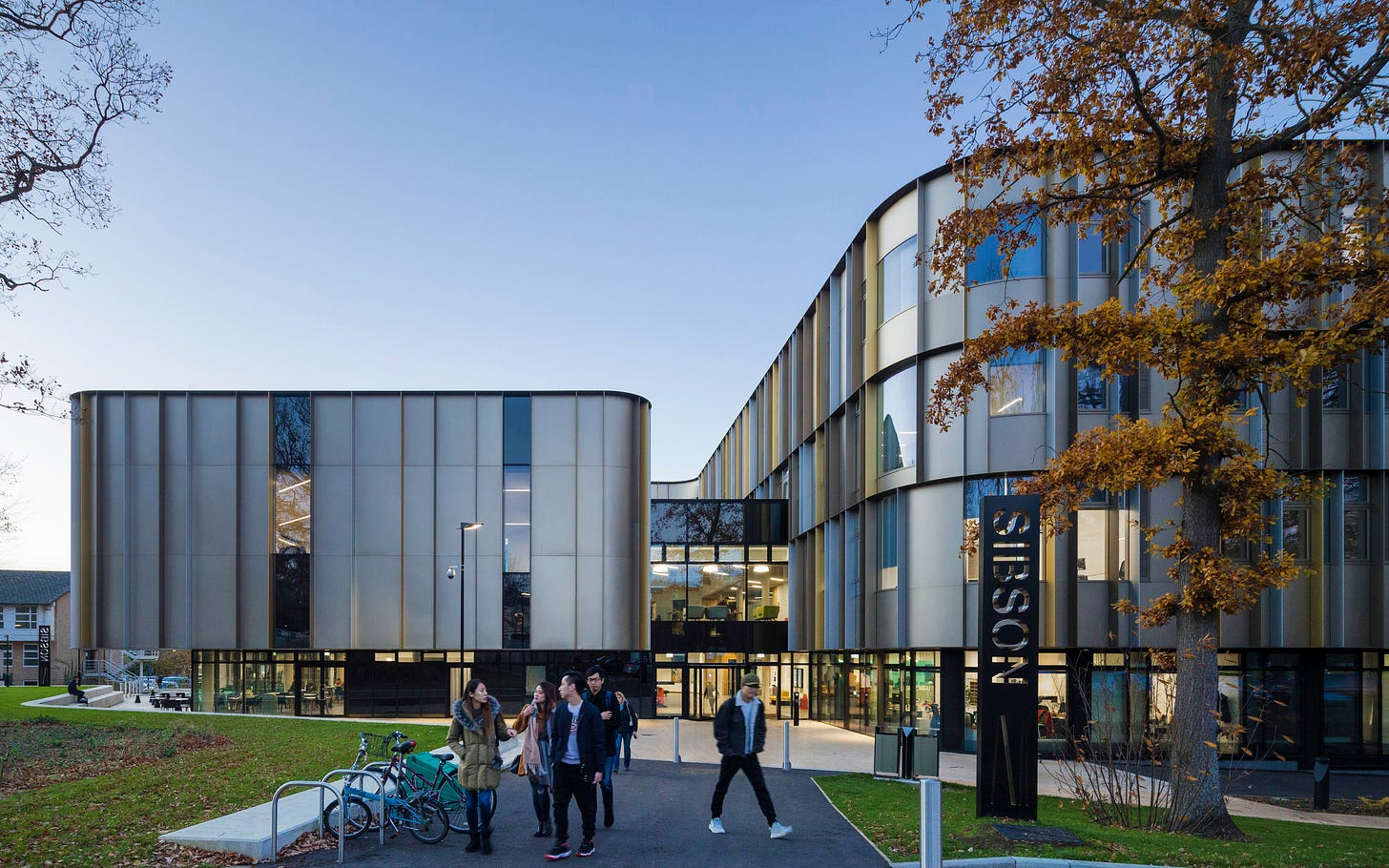University of Kent flexes its muscles in the start-up world
Is the County's leading university doing enough to support the next gen of start-ups?
IN DEPTH
University of Kent jumps up the rankings for cultivating start-ups. But, does more need to be done to enable more university spin-outs?
In a remarkable leap, the University of Kent has catapulted itself to the 38th position in the prestigious Octopus Ventures "Entrepreneurial Impact Ranking 2022". This rise of 22 places in just two years, from its 60th position in 2020, is an astonishing jump and reflects steps taken by the University to nurture and foster student entrepreneurship.
The University of Kent is now surprisingly placed higher than the Universities of Warwick, Edinburgh, and Newcastle for supporting and cultivating spinout star-ups despite being dwarfed in student population size. The Octopus Ventures "Entrepreneurial Impact Ranking" is an annual assessment that evaluates the entrepreneurial ecosystems of universities across the United Kingdom. The ranking places a strong emphasis on a university's ability to generate and support startups, produce impactful research, and facilitate collaboration between students, academia, and industry.
This phenomenal jump in the rankings not only reflects the University of Kent's growing emphasis on innovation and enterprise but also highlights its role as a key player in the region's entrepreneurial landscape. In recent years, the University has taken steps to deepen its relationship with industry partners. Last year, the university and Discovery Park - the leading science park in Kent - signed a Memorandum of Understanding that has led to greater partnership in a number of strategic areas including Industrial Biotechnology, Neurosciences and digital and data driven healthcare. The University has further worked with students to support them in developing and licensing IP, and the Kent Business School is working with local authorities and business centres to improve the county’s economy.
The importance of this work should not be underestimated. Universities lay the foundations for creating world-leading firms with the power to commercialise ‘outside of the box’ ideas that can transform society. Spin-outs are vital to local economies, creating high-quality jobs and driving investment. In 2020/21, businesses spun out from Russell Group universities created 33,000 jobs and brought in £4.9 billion of investment. In Kent, we have also benefitted from this. The acquisition of UltraSoC Technologies by Siemens in 2020 serves as a notable illustration of a successful spinout originating from a collaboration between the University of Kent and the University of Essex. UltraSoC was a global leader in cybersecurity and intelligent monitoring prior to its acquisition, and created a number of high-skilled jobs across the local economy.
However, the University of Kent is navigating a period of uncertainty like many educational establishments across the UK which could jeopardise the University’s ability to develop start-ups.
Academic strikes related to concerns over pensions, short-term contracts, and excessive workloads have contributed to what is being termed the 'great resignation' in the higher education sector. A report released by the University and College Union (UCU) under the title "UK Higher Education: A Workforce in Crisis" paints a concerning picture, estimating that within the next five years, approximately 60% of its members are poised to exit the university ecosystem. During September, staff at the University of Kent walked out as part of a five-day strike in response to the ongoing pay and conditions dispute.
Elsewhere, the shadow of Brexit continues to weigh on our universities. Following Britain’s exit from the European Union, EU citizens became ineligible for funding through the UK research councils. This has resulted in EU students now being classified within the international tuition fee category. This shift has consequently created a substantial deficit in funding opportunities for European individuals with exceptional talent. 11% of Kent University’s student population arrive from the EU with increased fees a barrier to research development and commercialisation in the years to come.
Octopus Ventures, in their research for this report, further pointed out a crucial issue voiced by institutions situated outside the golden triangle of U.K. research (London - Cambridge - Oxford). Beyond the triangle, institutions often struggle to retain spin-outs within their regions, primarily due to the scarcity of local talent, suitable infrastructure, and workspace required for their expansion. Unlocking capital for facilities, strategically aligned with regional development prospects, holds the promise of fostering fresh hubs of excellence across the United Kingdom. The University of Kent is also exposed to this challenge with talent often moving outside of the county beyond graduation.
In the years ahead, it is vital that Kent considers how it can retain high-skilled graduates in order to grow our local economy. Too often graduates go to London due to a lack of local, quality roles. Nurturing more spin-outs is part of this work, and will ensure that students have other pathways available to them beyond moving to the Capital.
As the University of Kent continues to climb the ranks, it is solidifying its position as a breeding ground for future leaders and groundbreaking startups. This is cementing its reputation as an academic institution that's not just focused on education, but also on creating a lasting impact on the business world. However, more needs to be done in the years ahead to overcome barriers to growth and retain educated students in the local area.




